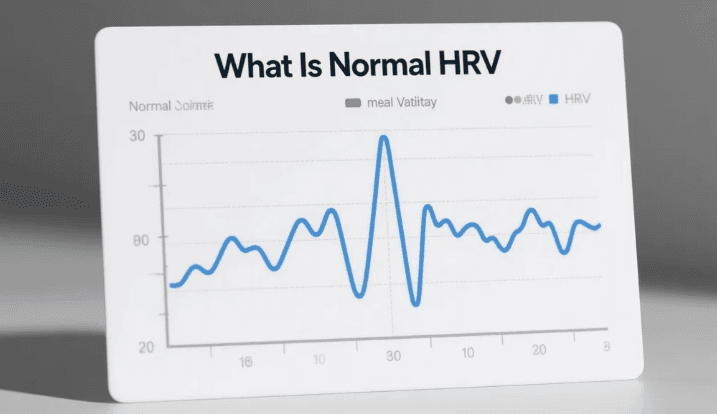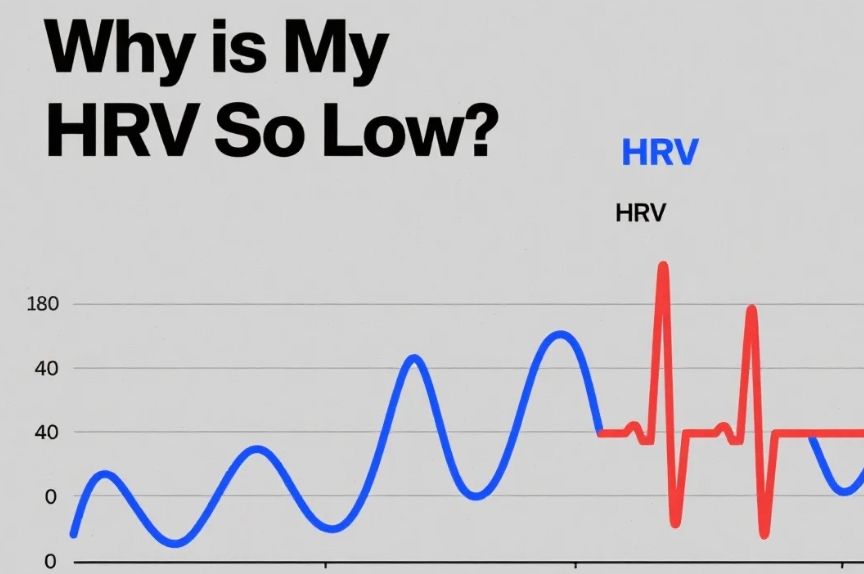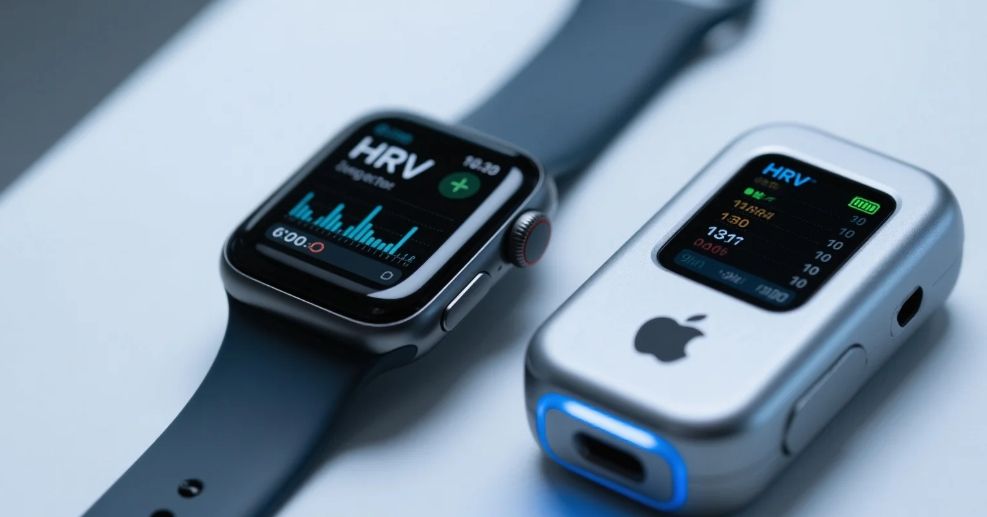Why is My HRV So Low? How to Improve It
Understanding Heart Rate Variability (HRV)
Heart Rate Variability, or HRV, measures the variation in time between each heartbeat. It is not about how fast your heart beats, but how variable the intervals between beats are.
A higher HRV is generally a sign of a healthy, adaptable heart, while a lower HRV may signal stress, fatigue, or even chronic health conditions.
HRV is influenced by your autonomic nervous system, particularly the balance between the sympathetic ("fight or flight") and parasympathetic ("rest and digest") branches.
When you are relaxed, HRV tends to be higher. When you are stressed or overtrained, it drops.
If you're asking, “Why is my HRV so low?”, you're already on the path to better understanding your health.
What is Considered a Low HRV?
There’s no universal standard for low HRV, as normal values vary based on age, gender, fitness level, and genetics.
However, consistently low readings—especially if accompanied by fatigue, poor sleep, or emotional stress—can be cause for concern. In general:
- Elite athletes may have HRV above 100 ms
- A healthy adult may range between 50–100 ms
- Below 50 ms could be considered low for most individuals
Common Reasons for Low HRV
There are many reasons why your HRV might be lower than expected. Some are temporary, while others may indicate chronic stress or underlying health issues.
1. Stress and Anxiety
Emotional stress is one of the most significant contributors to low HRV. Work pressure, relationship problems, or chronic anxiety activate the sympathetic nervous system, suppressing HRV.
2. Poor Sleep
Inadequate sleep quality or sleep deprivation directly reduces HRV. Your body restores itself during deep sleep. Without it, recovery stalls, and your nervous system remains imbalanced.
3. Overtraining or Physical Fatigue
Exercise is good for your heart, but overtraining without recovery can cause chronic fatigue and lower HRV. Athletes often track HRV to adjust training intensity.
4. Poor Nutrition and Hydration
A lack of essential nutrients or dehydration can impair heart function and autonomic regulation. Excessive caffeine or alcohol may also contribute to lower HRV.
5. Medical Conditions
Chronic illnesses such as cardiovascular disease, diabetes, or autoimmune conditions can result in consistently low HRV. If your HRV is chronically low, consult a healthcare provider for a full evaluation.
6. Sedentary Lifestyle
Lack of movement weakens the cardiovascular system and suppresses HRV. Regular physical activity helps balance your autonomic nervous system.
How to Improve Low HRV
The good news is that HRV is modifiable. You can take proactive steps to improve it naturally and consistently over time.
1. Practice Deep Breathing and Meditation
Breathing exercises stimulate the parasympathetic nervous system. Just 5–10 minutes of slow, deep breathing or guided meditation daily can significantly improve HRV.
2. Prioritize Sleep Hygiene
Set a consistent sleep schedule, avoid screens before bed, and keep your bedroom cool and dark. Sleep is foundational to recovery and HRV improvement.
3. Exercise Regularly—but Smartly
Include a mix of cardio, strength training, and flexibility work. Pay attention to how your body feels and avoid pushing yourself through fatigue.
4. Stay Hydrated and Eat Whole Foods
Drink enough water and consume foods rich in vitamins, minerals, and omega-3s. Avoid processed foods and limit sugar and alcohol intake.
5. Track and Analyze Your HRV Trends
Instead of fixating on daily values, focus on trends over weeks. Daily fluctuations are normal, but persistent downward patterns need attention.
Using Technology to Monitor Your HRV
HRV tracking used to be limited to high-end medical equipment, but now it's available to everyone through smartphones and wearables. Accurate tracking is key to making real improvements.
Try the Bodywave App
Bodywave is a powerful yet easy-to-use app that tracks your heart rate variability, stress levels, and recovery status in real time.
With intelligent recommendations, visual trends, and simple breathing exercises, it helps you stay on top of your health and well-being.
Whether you're an athlete or someone managing daily stress, Bodywave provides meaningful insights to guide your lifestyle choices.
When to See a Doctor
If your HRV is consistently low and you’re experiencing symptoms like chronic fatigue, insomnia, or anxiety, it's wise to seek medical advice.
HRV is just one marker and should be evaluated alongside other health indicators.
Final Thoughts
Low HRV is a warning signal from your body. It reflects how well you’re coping with physical and emotional demands. Rather than seeing it as a negative, use it as a motivator to improve your sleep, nutrition, movement, and stress management.
With the right approach and tools like the Bodywave app, you can improve your HRV, enhance your resilience, and boost your overall well-being. It’s not about chasing numbers but about creating a healthier balance in your life.







BodyWave: Invest in Your Well-being!

